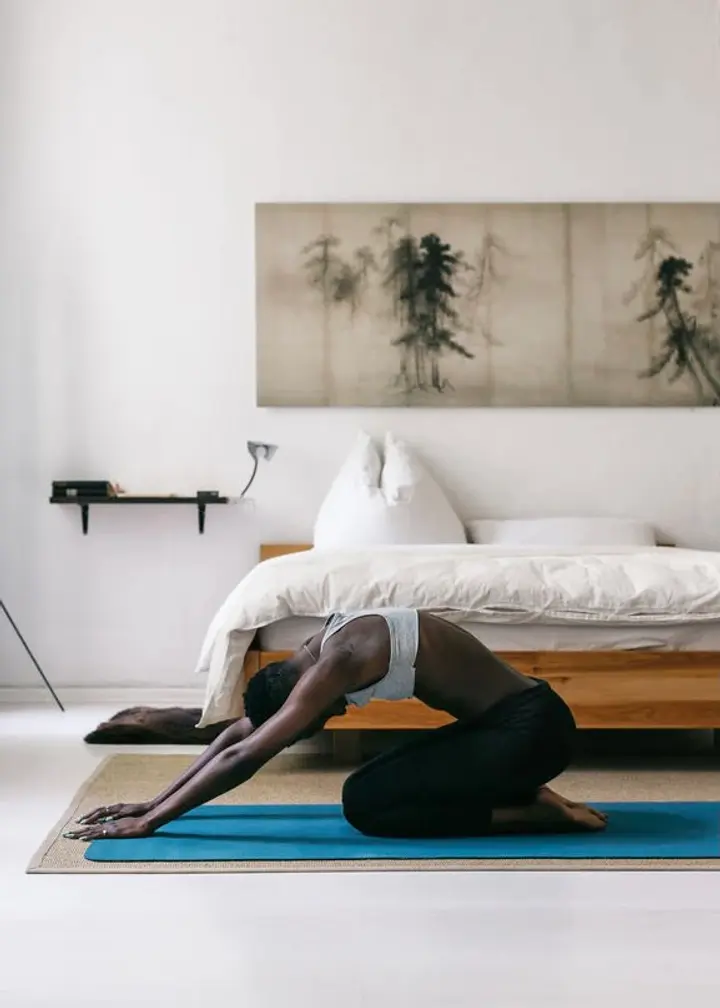
When Should You Workout to Get the Best Sleep?
We asked an expert.
We’re living in a world of ‘eras’ at the moment, and I’m making the most of it. Yes, I’m still in my snoozing era, I’m yet to leave my sleeping-with-a-stuffed-toy-era, and I’m now in my running era. I’m not sure how long this new era will last but it’s healthier than the others so I’m hoping it will be for a while.
I really don’t have a set time for when I run, I sort of just do it (Nike, sponsor me). I usually run after work, but sometimes I feel like running before work. I’ll head out for a run if an episode of my favourite podcast comes out, I’ll run after a night out to pick my car up after leaving it at a friend's house. I even went for a run halfway through writing this article. So, I think I can award myself the ‘running-era’ accolade without hesitation.
After consistently running for a few months now, accumulating an abundance of blisters and shin pain along the way, I wanted to find out when the best time to run was to get a good night’s sleep, so I can continue wearing the ‘running-era’ badge of honour without jeopardising my precious 8-hours.
I spoke with exercise physiologist Jordy Mitchell to find out how exercise affects sleep, and when you should workout to ensure the best rest.
Is it better to exercise in the morning or evening?
As a long-time fan of my alarm’s snooze button, I’ve always found it difficult to exercise in the morning, but could it be worth giving up those extra 9 minutes in bed to sleep better each night? Jordy makes a strong case for it.
“Exercise releases endorphins (the feel-good hormone) which can create a level of brain activity, keeping some individuals awake,” said Jordy. “If this is the case for you, you should aim to exercise in the morning or early afternoon to give you enough time to wind down,” she added.
Why do some people find it hard to sleep after a workout?
Honestly? Inconclusive. “The time of day when you exercise and the impact on your sleep varies from person to person. Some individuals find exercising too close to bed can cause difficulty falling asleep. However, research shows that exercise ensures you have more energy throughout the day, and makes you more tired at night,” said Jordy.
“Exercise also releases cortisol and adrenaline (stress hormones) which are both hormones which can impact sleep duration and cause wake periods,” said Jordy, “although recent studies have suggested that this increase post exercise doesn’t impact a good night's sleep – in fact exercise decreases your cortisol levels over time.”
If you find it hard to sleep straight after a late-night run or gym sesh, you may need to re-think your schedule. If you don't? No worries.
The Takeaway
After speaking to Jordy, I think it's safe to say I can stick to running at whatever time I please, without having my quality of sleep impacted.
“Both morning and evening exercise have been shown to promote deep sleep and decrease latency,” said Jordy. "Although it has previously been suggested to avoid intense exercise too close to bedtime, it appears in recent times sleep is not affected by exercising in the morning versus the evening,” she added.
How to make sure your workout routine suits your sleep schedule:
“Regular exercise, regardless of the time of day, can ultimately improve sleep quality (deep sleep) and increase quantity (hours),” said Jordy. “If evening workouts are more convenient for you, focus on creating a relaxing bedtime routine.”
Here are some tips Jordy shared if you’re looking to optimise your evening routine:
- Sleep in a dark, cool, and quiet room
- Avoid blue light in your bedroom
- Assign regular sleep and wake times
- No caffeine after 3 pm
- Set a relaxing evening routine e.g. meditation, stretching, hot bath, reading.
This article is intended for informational purposes only and is not a substitute for individualised health advice. If you are concerned about your health and well-being, please speak to your GP, who will advise on the correct treatment plan.
Enjoyed This?
Learn more about sleep health.










